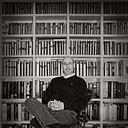
Famous Misquotations: Education is Not the Filling of a Pail, but the Lighting of a Fire
This is one of the most overused quotations in the world of education: “Education is not the filling of a pail, but the lighting of a fire” by William Butler Yeats. You find it on websites for schools and colleges as well as many books about education and teaching. And of course, it is found on all kinds of merchandise: posters, coffee mugs, t-shirts, and so forth. But like many quotes found on the internet, there is no evidence that the great Irish poet William Butler Yeats ever said or wrote this. Some websites attribute the quote to Socrates, Plato, or Plutarch. So which is correct? Let me welcome you into the classroom of Famous Misquotations 101, where we will seek enlightenment.
Garson O’Toole, commonly known as the Quote Investigator, does a deep dive into the origins of this quotation in his fascinating book, Hemingway Didn’t Say That (2017). He begins his investigation with the Greek philosopher and historian Plutarch’s essay “On Listening” found in Moralia (“Morals” c. 100): “For the mind does not require filling like a bottle, but rather, like wood, it only requires kindling to create in it an impulse to think independently and an ardent desire for the truth [Loeb Classical Library, 1927].” Almost 70 years later, Robin Waterfield translates the passage a little bit differently for the Penguin Classics edition (1992): “For the correct analogy for the mind is not a vessel that needs filling, but wood that needs igniting — no more — and then it motivates one towards originality and instills the desire for truth.”
As is common with misquotations, an author’s paraphrase of the ideas of a notable writer mistakenly becomes attributed to that writer. O’Toole presents Exhibit A in The Dialogues of Plato (1892) translated by Benjamin Jowett. In the introduction to “The Republic,” Jowett describes Plato’s concept of enlightenment: “Education is represented by [Plato], not as the filling of a vessel, but as the turning the eye of the soul towards the light.” Note that these are Jowett’s words and not Plato’s. Nevertheless, this quote is often mistakenly attributed to Plato or his famous teacher, Socrates.
By now you may be asking: “So how in the world does a quote attributed to Plutarch, Plato, or Socrates, jump a few centuries and get attributed to a 19th-century poet?” Excellent question, Padawan. O’Toole presents Exhibit B: the attribution of a quote transferred to another writer by proximity. Say what? O’Toole was able to find a book, Visions and Image: A Way of Seeing (1968) by James Sweeney. In the book, Sweeney places the Plutarch quote adjacent to a quote by William Butler Yeats. Here is the sentence: “William Butler Yeats has expressed the heart of this viewpoint in his statement, ‘Culture does not consist in acquiring opinions but in getting rid of them’ and Plutarch in ‘Education is not the filling of a pail, but the lighting of a fire.’” You can see what happens here if you do not read this sentence carefully. It only took one reader to read it this way and erroneously conflate the two quotes: “William Butler Yeats has expressed the heart of this viewpoint in his statement, “Education is not the filling of a pail, but the lighting of a fire.” Alas, this careless reading is what ignited the wildfire of this ubiquitous misquotation. It doesn’t help matters when the future editor of a collection of quotations does not research it thoroughly and perpetuates the misquotation by putting it in print. Specifically, Robert Fitzhenry the editor (or perhaps his team) of the Barnes and Noble Book of Quotations(1987) mistakenly attributes the Plutarch quote to William Butler Yeats. Oops!
Interestingly, while researching another topic, I serendipitously came across a beautiful passage by the Italian scholar, Marsilio Ficino, who was a student of Plato and one of the most influential humanist philosophers of the Italian Renaissance. In his letters, written between 1474 to 1494, Facino employs the same metaphor as Plutarch [Volume 4, Letter 7]: “As the sky is to the light of the sun, so is the mind to the light of truth and wisdom. Neither the sky nor the intellect every receive rays of light when they are clouded, but once they are pure and clear they both receive them immediately… the divine cannot be spoke or learned as other things are. However, from continued application and a matching of one’s life to the divine, suddenly, as if from a leaping spark, a light is kindled in the mind and thereafter nourishes itself.”
____________________
If you enjoyed this essay, you might enjoy my book, Serendipitous Discoveries from the Bookshelf, based on my popular blog, Atkins Bookshelf. The blog explores the world of ideas — through books, movies, music, quotations, and the English language — for the intellectually curious. At the heart of Atkins Bookshelf is a lifelong love of books and literature; its goal is to educate, entertain, and inspire.
The book can be found here.
The blog can be found here.
